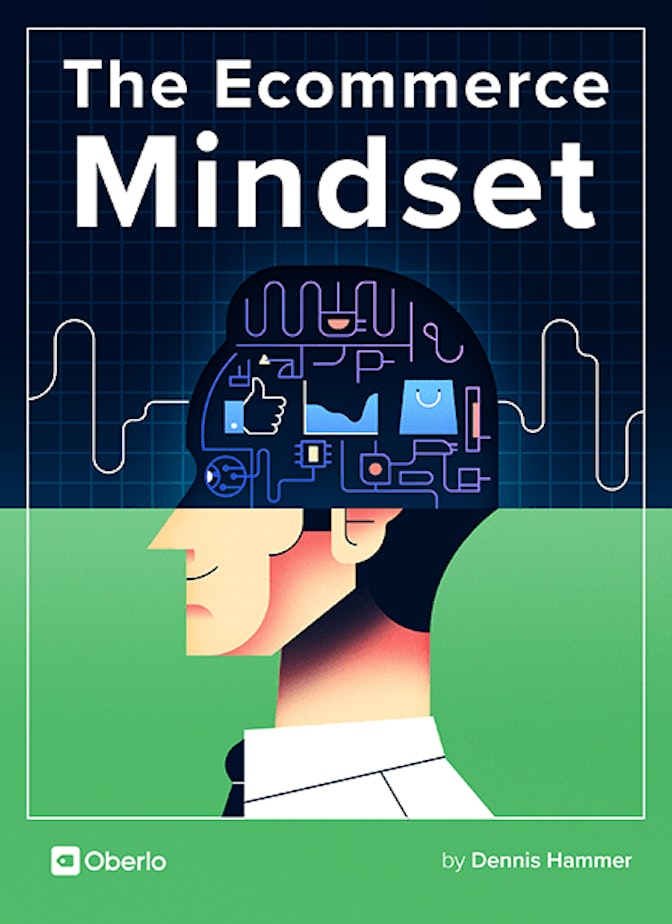As an ecommerce store owner, you’re not just competing with other store owners.
You’re competing with the entire ecommerce industry. According to PipeCandy, a data-based analytics company for ecommerce stores, about 1.3 million ecommerce companies are currently operational in the United States and Canada.
Talk about competition.
Plus, the ease of opening an ecommerce store means other people can do it too. Unless you have an exclusive arrangement with your supplier (which is unlikely), other stores can sell the exact same products. In fact, some eager entrepreneur can open a facsimile of your store and steal your sales.
On top of that, you’re fighting an uphill battle against the biggest ecommerce competitor of all: Amazon. (We discussed this behemoth and its CEO in the last chapter.)
So why should someone choose your store over all the others? What value do you bring that they just can’t get anywhere else? Why would they trust you when they could they simply search Amazon and make their purchase with Amazon’s easy checkout process?
Countless ecommerce entrepreneurs get ahead of themselves and build a store that looks just like every other store on the web. They use a default theme (which is just inexcusable, considering how many Shopify themes are available), stock it with generic products, and forget to add any personality or spice to their brand.
Most importantly, they forget to design an experience that separates them from their competitors.
This isn’t to say your web design should be dramatic or unfamiliar.
Instead, you should create a complete customer experience that makes your users feel like they’re visiting a store that’s worth their time and money, not some random shop they happened to come across.
Bottom line: If you want to be successful, you must stand out from the competition.
So ask yourself: What makes you unique?



Every Store Needs a Unique Selling Proposition
To separate yourself from the crowd, you need a unique selling proposition (USP).
A USP is a factor (or a set of factors) that sets you apart from everyone else. It’s the quality (or qualities) that convince a customer to stop their online search and buy from you.
→ Click Here to Launch Your Online Business with Shopify
At one point, free shipping was a USP for many stores. But free shipping has become so commonplace, online shoppers have come to expect it. It’s good to mention “free shipping” on your site somewhere, but it’s no longer the factor converting shoppers.
[highlight]If you don’t offer free shipping, find a way to provide it. According to a survey by Shippo, 63% of buyers would choose a store that offers free shipping over one that doesn’t, and 34% would only buy if shipping were free. Moreover, in a Walker Sands Communication survey, 88% of buyers said that free shipping impacted their purchase decision, making it the most powerful incentive you can offer.[/highlight]
You can make your USP be almost anything, like if there’s a special way you handle customer service, your website design, or your uncanny ability to curate great products.
You can always find an awesome USP. You just have to be creative and willing to work hard at developing yours.
Kate Lapicka found her USP by selling products you can’t find in many other places. Her store sells merchandise and memorabilia related to popular anime series.
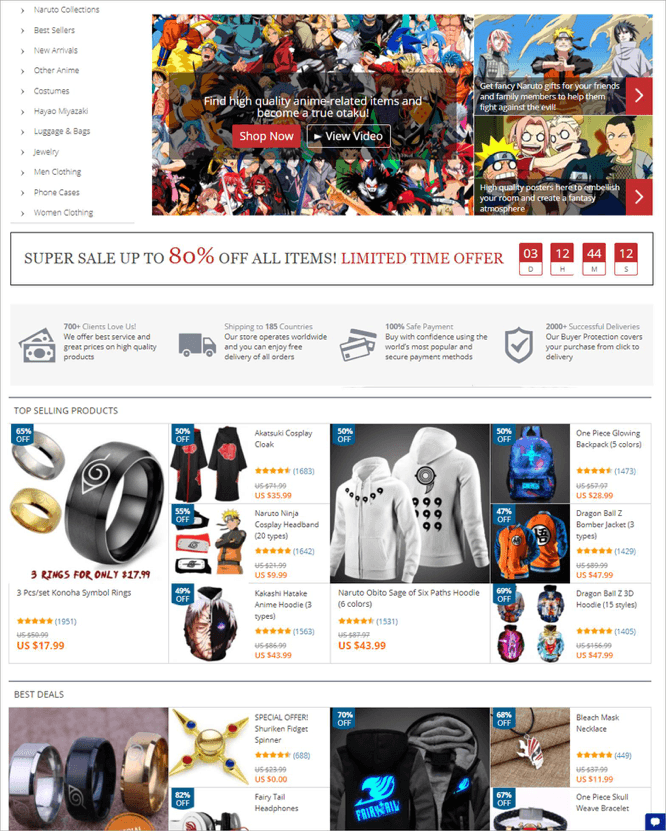
Many Japanese companies that produce anime don’t officially sell merchandise, so Kate doesn’t compete with the creators. When someone wants a T-shirt or a bracelet in the style of their favorite anime, they have to go to Kate or other “small-time” sellers.
That’s because there is no “official” store.
By recognizing the gap in the market, Kate positioned herself to sell to a devoted fan base that desires her merchandise, and there aren’t many other places they can get these items from. In fact, her USP helps her generate $32,000 a month in sales.
You only have 7 seconds to make an impression on your visitors, so a USP should be immediately apparent once the site loads. Place your USP above the fold, so your visitors don’t have to scroll to see it.
Don’t expect them to guess why you’re worth their money. (They won’t.)
There’s no denying Death Wish Coffee’s USP. It’s the world’s STRONGEST coffee.
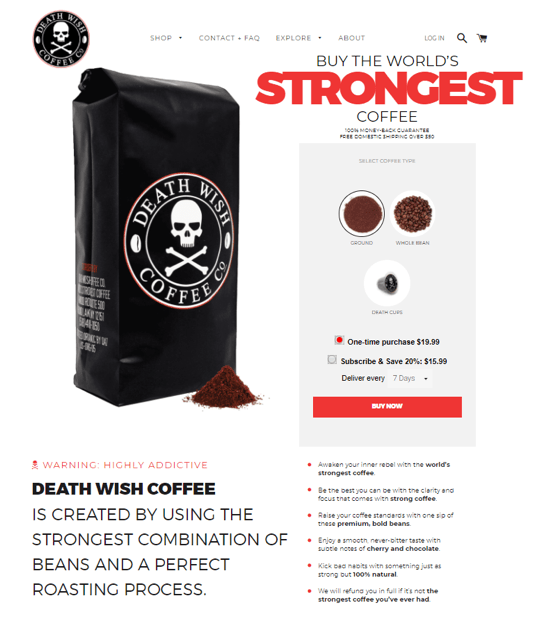
In a similar vein, we can tell right away that Pipcorn is a unique type of healthy mini popcorn.
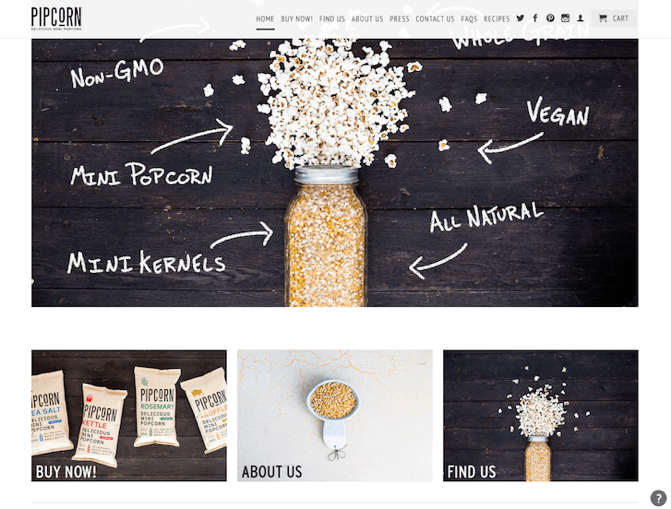
Twelve Saturday’s has an interesting USP as well. The store sells women’s clothing for the college football season. (Talk about a niche!)
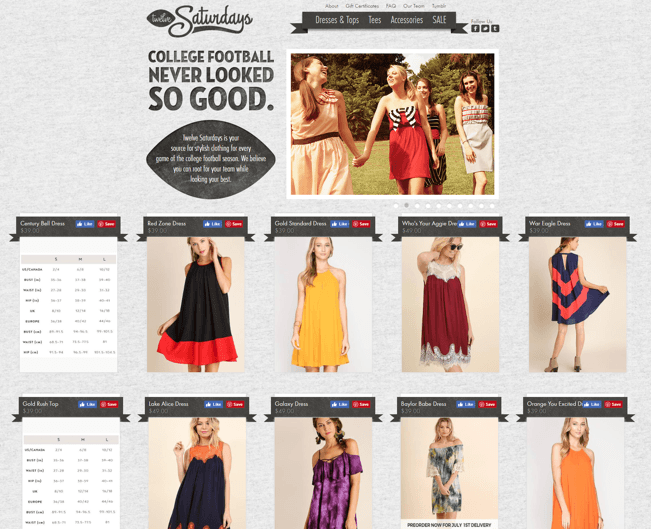



How to Create Your USP
Your USP can be anything, as long as it helps you stand out from the crowd. It should be the little nugget people add when they refer your store to others.
Your goal is to get someone to recommend you with something like this:
“Hey Bob, check out Frank’s BBQ Emporium. Their customer service is phenomenal.” The second sentence (about the customer service) is the USP.
To create your own USP, start by asking yourself a few questions. You may have to dig into your buyer personas (remember these from before?) and do some market research to determine what your customers find important.
Ask yourself…
- How are my products different from my competitors’?
- How can my services be different from my competitors’?
- What motivates my customers to purchase my products?
- What do my customer care about most?
- What are the main benefits my products have to offer?
- How do my products improve my customers’ lives?
- Why should my customers buy from me?
- What about my business do I want my customers telling their friends about?
Once you have the answers to these questions, see if you can string them together into a single statement. Keep it as simple as possible. A USP is most impactful when it’s easy to digest. You should be able to say it quickly (like an elevator pitch) when you meet someone new or send off a quick email.
USPs generally fall under one or a few of these categories: Quality, speed, selection, service, customization, convenience, guarantee, specialization, and originality. You can touch on multiple categories, but don’t try to cram too much into your USP.
Your USP can be just a few words, or it might be a full sentence. If it’s small, you might be able to fit it into your tagline (like Domino’s, with “30 minutes or it’s free”).
Once you have a USP, use it to guide everything else you do. If your USP is your unique fashion designs, don’t publish generic products to your store. And if you want to be known for providing unbeatable customer service, don’t leave any customer feeling dissatisfied.
Remember: Your USP is your promise to your customers, and a strong one will let your marketing take care of itself.

